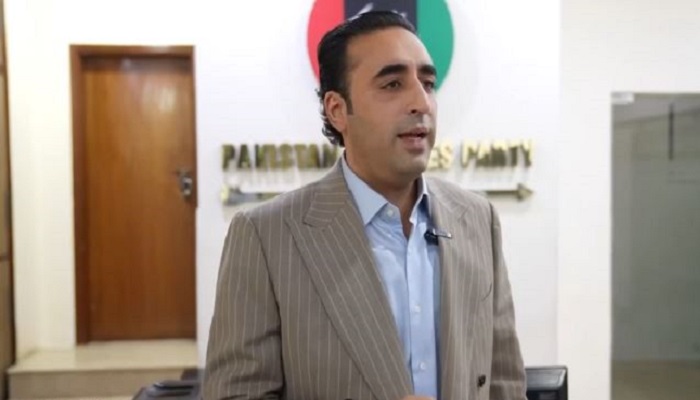KARACHI: Pakistan Peoples Party (PPP) Chairman Bilawal Bhutto-Zardari revealed that he withdrew from the Judicial Commission of Pakistan (JCP), reconstituted after the 26th Constitutional Amendment, citing the PML-N-led government’s failure to honor its commitment to ensure equal representation in the judicial body.
Speaking to journalists in Karachi on Thursday, Bilawal said, “I stepped back from the [JCP] in protest as the government did not fulfill the promise made during the [26th] amendment.”
Responding to a question about the nomination of all existing Sindh High Court judges to constitutional benches, Bilawal stated that if he had attended the JCP meeting, he would have sought clarification on the perceived “indifference” toward Sindh.
On November 8, the JCP endorsed a proposal by Sindh High Court Chief Justice Muhammad Shafi Siddiqui to nominate all high court judges for constitutional benches to address pending cases. Bilawal noted that an alternative suggestion was made to include every sitting Supreme Court judge on constitutional benches, but it was rejected in favor of appointing a “non-controversial” chief justice as head.
He criticized some judges for engaging in political behavior from the bench, stating, “They do not deliver rulings aligned with the Constitution but instead make political statements, bending laws to assume executive powers.” Bilawal argued this history justified the need for amendments.
Expressing concern over a lack of uniformity in the judicial system, Bilawal said, “Two separate systems cannot coexist in the country,” but expressed hope that future JCP meetings might revise these decisions.
Regarding judicial reforms, Bilawal emphasized that the 26th Amendment was only the beginning, and further reforms must extend to the lower judiciary.
He urged Sindh’s chief minister to collaborate with judicial leadership to implement these reforms, noting that most people’s interactions occur at the grassroots level.
On relations with the federal government, Bilawal denied any estrangement but voiced dissatisfaction with the lack of consultation on legislative matters, emphasizing that agreements made in “good faith” must be implemented.
He also criticized the approval of new canals on the Indus River, claiming it violated an agreement between the PPP and PML-N, which stipulated joint planning for development projects.
Bilawal accused the government of greenlighting the project without PPP’s knowledge, despite their reservations.
Commenting on restrictions on Virtual Private Networks (VPNs), Bilawal remarked that decision-makers neither use the internet effectively nor understand VPNs.
He criticized government policies harming the technology and agriculture sectors, which he identified as key to economic growth. He argued that modern infrastructure prioritizes internet connectivity and speed, but Pakistan lags with what he described as “3G-level” internet speeds.
Bilawal also condemned the Pakistan Telecommunication Authority’s (PTA) decision to block unregistered VPNs, stating that better methods exist to secure the internet and regulate online activity. “The government must focus on enabling people to participate in the new digital economy,” he said.



















